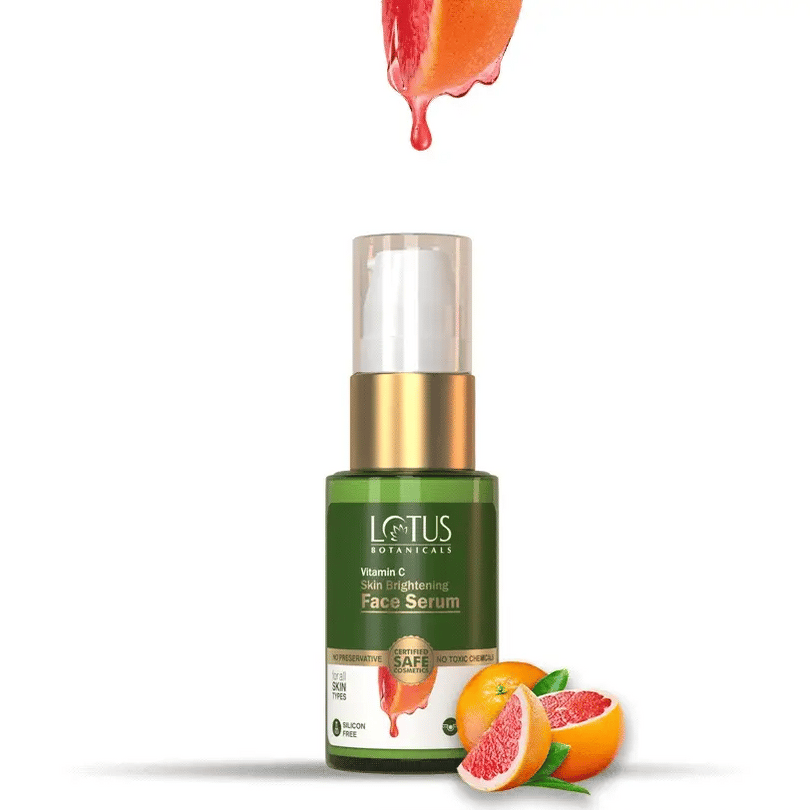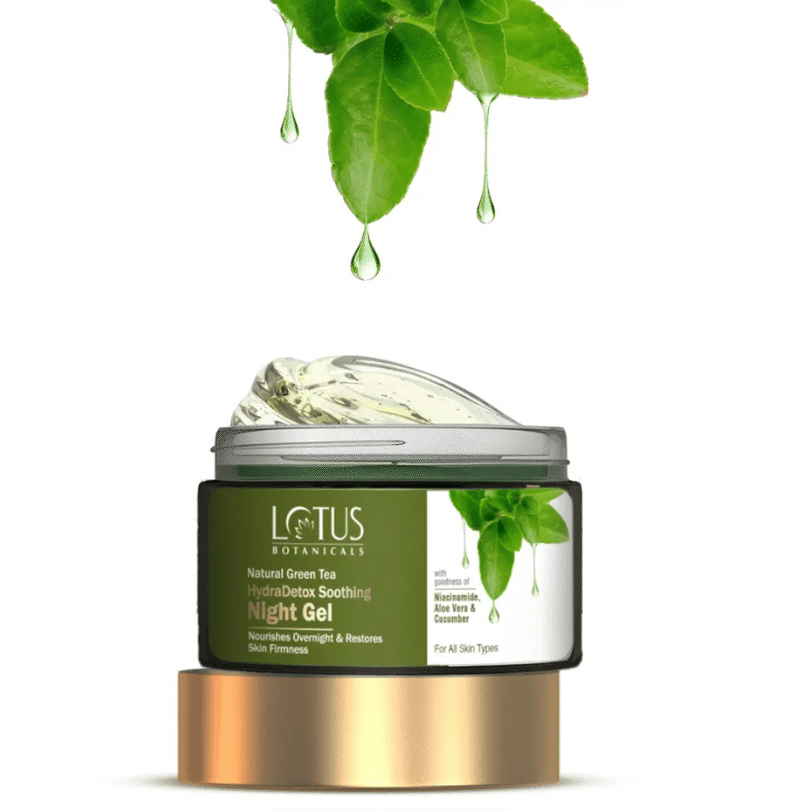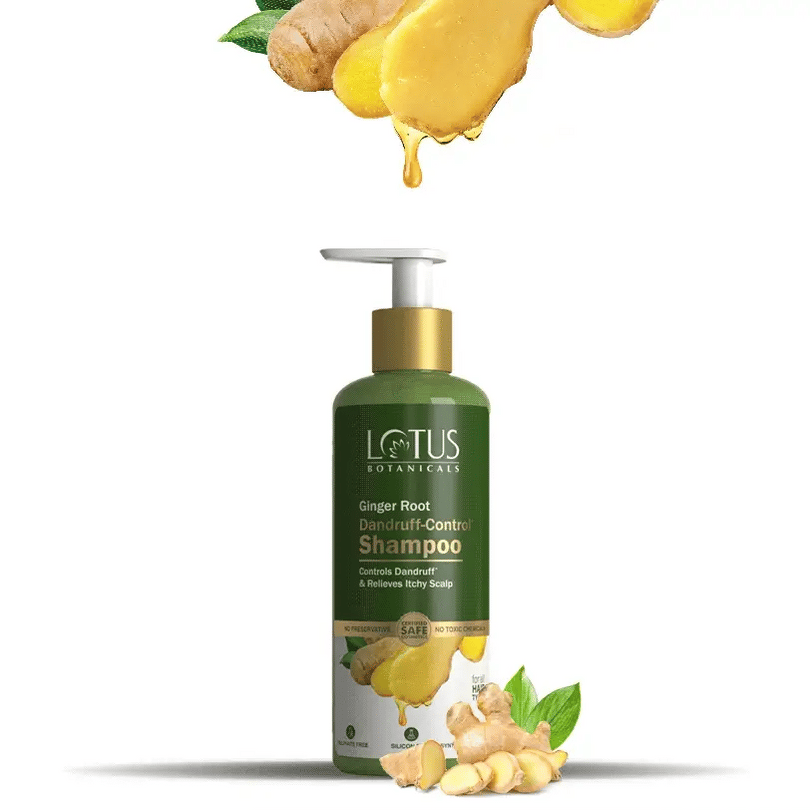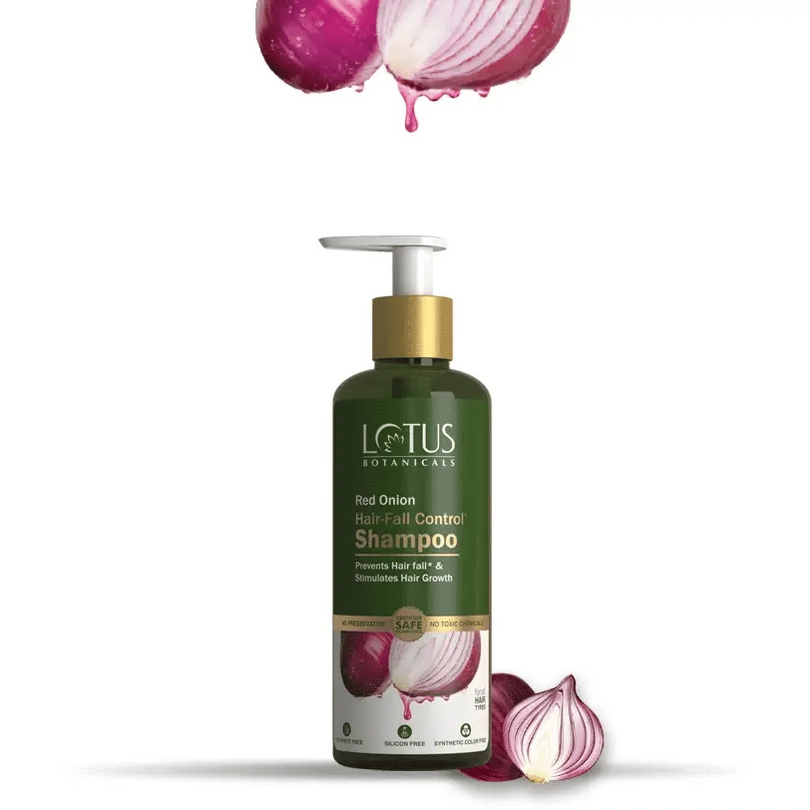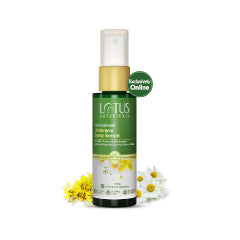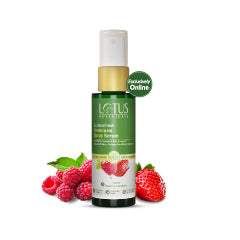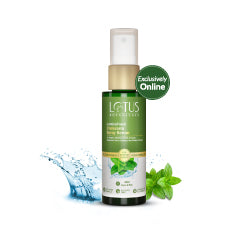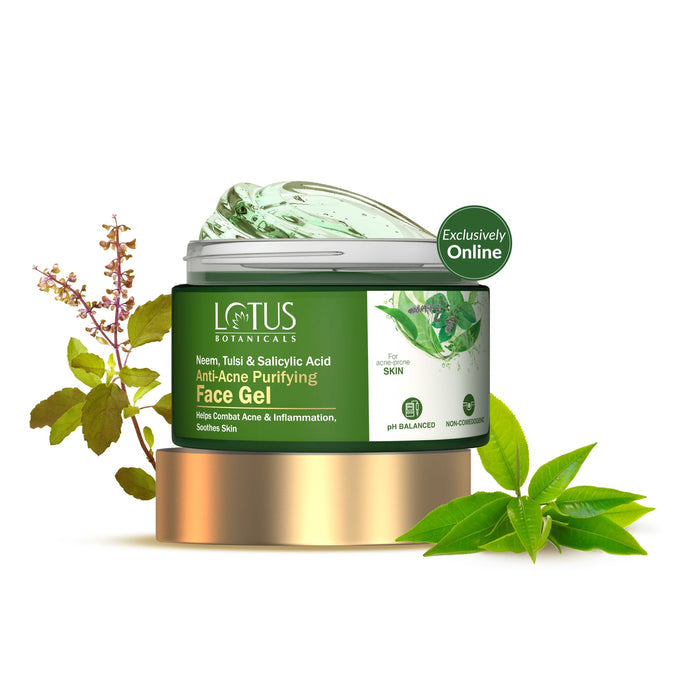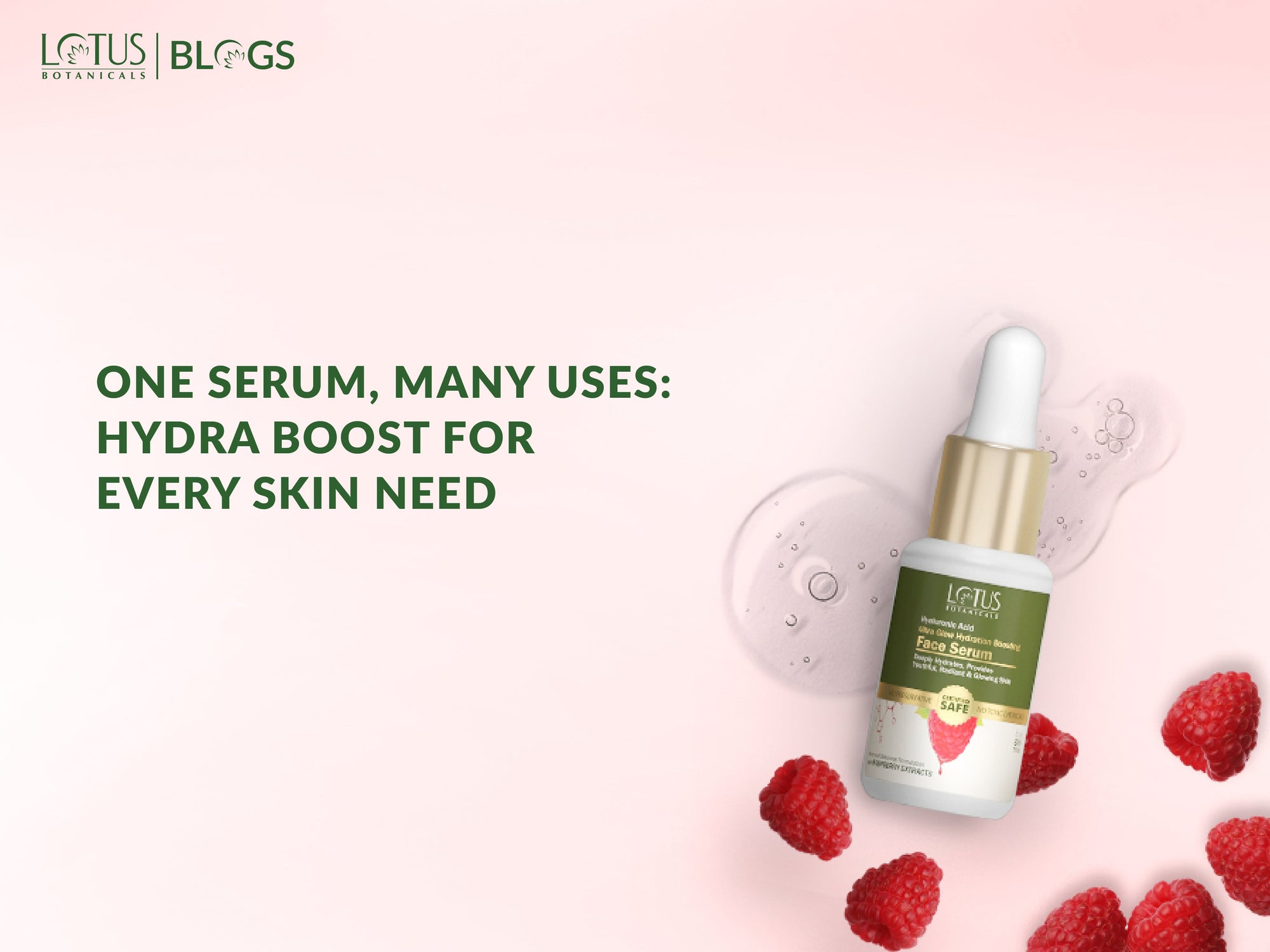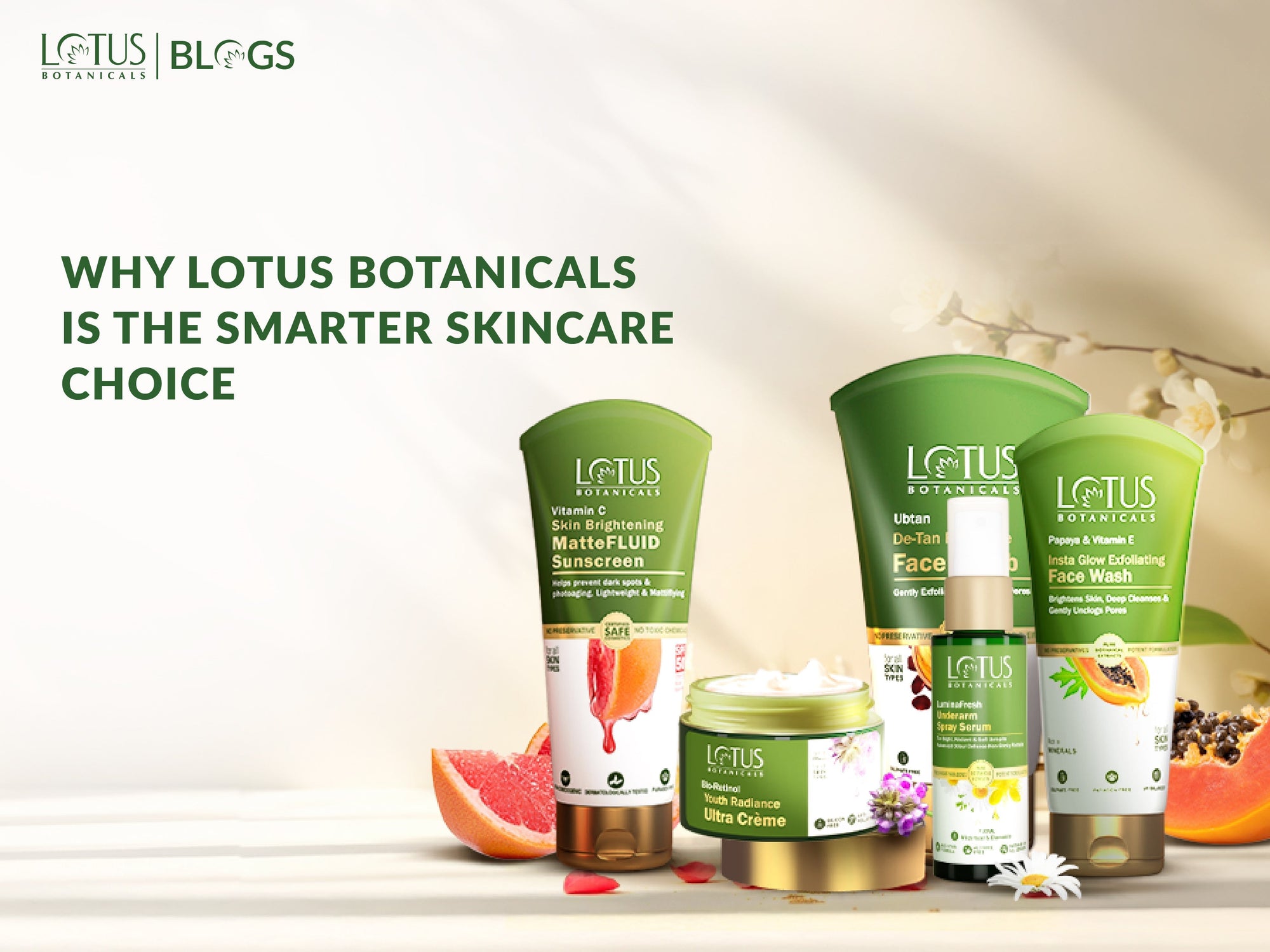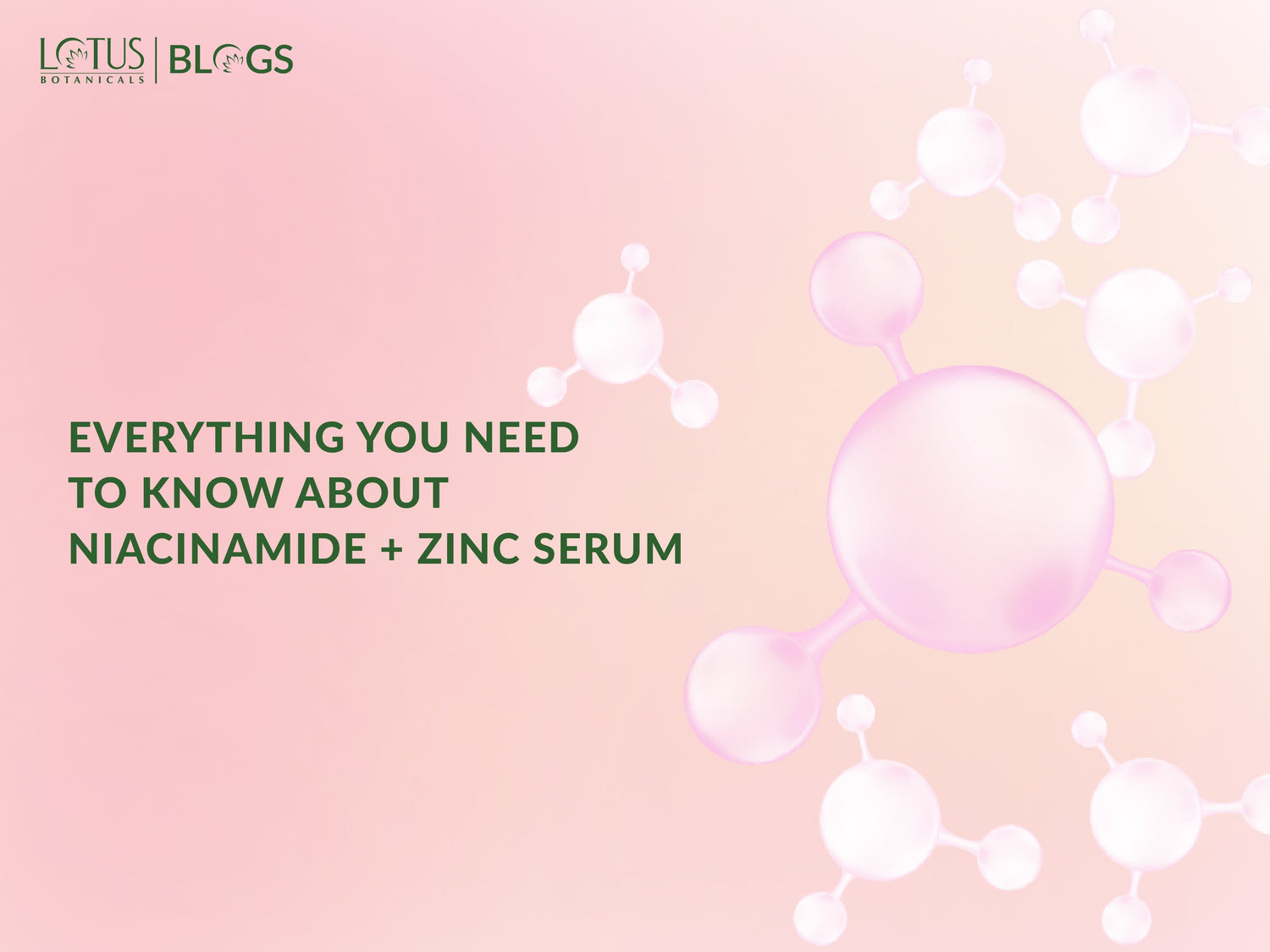
Highlights
-
Common Reasons Your Face Feels Greasy by Midday
-
What Makes Niacinamide + Zinc Serum a Smart Choice for Oily Skin?
-
How These Ingredients Tackle Excess Oil and Shine
-
Discover More with Lotus Botanicals
-
What Happens After One Week?
-
Beyond One Month: Long-Term Gain
-
Will Niacinamide + Zinc Serum Work for Your Skin Type?
-
Tips for Sensitive and Pigmented Indian Skin
-
How to Add Niacinamide + Zinc Serum to Your Daily Routine Without Stress
-
Which Niacinamide + Zinc Serum Actually Works for You in India?
-
What If You Have Breakouts or Dark Spots? Can This Serum Help?
-
Mistakes to Avoid When Using Niacinamide + Zinc Serum for Oil Control
Why Does Your Skin Get So Oily? Let’s Break It Down
Ever wondered why your face feels like an oil slick halfway through the day? You’re not alone. Oily skin is something most of us deal with at some point, especially if you live in India. But what’s really going on? Let’s dive into the real reasons your skin gets oily and how your surroundings play a huge part.
Common Reasons Your Face Feels Greasy by Midday
You wash your face in the morning, but by lunch, there’s that telltale shine. Sound familiar? Here are the usual suspects:

- Overactive Sebaceous Glands: These glands produce sebum (oil) to keep your skin soft. Sometimes, they just go into overdrive.
- Hormones: Puberty, periods, pregnancy, your hormones can send oil production through the roof.
- Using Harsh Products: Ironically, washing your face too often or using strong cleansers can strip away natural oils. Your skin tries to “fix” this by making even more oil.
- Poor Diet: Love fried food and sugar? These can trigger your skin to make extra oil.
- Stress: Ever notice your skin gets worse when you’re stressed? That’s because stress hormones signal those glands to work overtime.
“Sebum isn’t all bad—it protects and moisturizes your skin. But too much leads to clogged pores and breakouts.” — Dermatologist Dr. Niharika Sharma
Here’s a quick table showing common triggers and how they impact your skin:
|
Trigger |
Effect on Skin |
|---|---|
|
Hot weather |
Increases sweat and oil production |
|
Poor skincare routine |
Irritates skin, increases oiliness |
|
Lack of sleep |
Disrupts hormone balance, triggers oil glands |
If you want more practical skincare advice, don’t miss our list of skincare and tips here.
How India’s Climate and Lifestyle Affect Oily Skin
Let’s be real India’s hot, humid weather is a big reason why oily skin is so common here. Here’s the thing: when it’s humid, your sweat mixes with sebum, making your face feel greasier than ever.
- Heat + Humidity: High temperatures open up pores and boost oil production. The moisture in the air doesn’t help either.
- Crowded Environments: Pollution clogs pores. Mix that with sweat and oil, and you’ve got the perfect recipe for breakouts.
- Lifestyle Habits: Spicy food, irregular sleep schedules, and long commutes under the sun all contribute to excess oil.
If you’re constantly battling shine, you’re not alone most of us in India deal with it daily. Choosing the right skincare products can help manage the problem. Check out our top picks for oily skin-friendly sunscreens.
Tired of midday shine? Here’s what works best for many people:
- Use gentle cleansers—don’t strip your skin!
- Avoid heavy creams during the day.
- Carry blotting papers for quick touch-ups.
- Add a lightweight sunscreen (yes, even if you have oily skin!).
Discover More at Lotus Botanicals
If you’re looking for reliable skincare solutions made for Indian skin and weather, check out Lotus Botanicals’ website. They offer everything from cleansers to sunscreens designed for oily and combination skin types.
Q: Is oily skin bad for you?
A: Not always! Some oil is good it protects your skin. Problems start when there’s too much, leading to clogged pores and acne.
Q: Can changing my diet help reduce oily skin?
A: Yes! Eating less fried food and more fruits and veggies can help balance oil levels over time.
Q: Should I skip moisturizer if I have oily skin?
A: No—just use a lightweight or gel-based moisturizer so your skin stays balanced but not greasy.
What Makes Niacinamide + Zinc Serum a Smart Choice for Oily Skin?
Struggling with oily skin can feel like a never-ending battle. You wash your face, but by lunchtime, the shine is back. Does this sound familiar? If you want to keep oil under control without drying out your skin, niacinamide + zinc serum might be your new best friend.
Here’s the thing: you don’t need a dozen products to get results. The right combination—like niacinamide and zinc—can make a real difference. Let’s break down what makes this serum such a smart pick for oily skin types.

- Balances oil production
- Reduces visible shine
- Soothes and calms irritated skin
- Helps prevent breakouts
Want more skincare inspiration? Check out these skincare tips to brighten your day!
The Science Behind Niacinamide + Zinc Serum Daily Oil-Balancing
So, how does this duo really work? Let’s start with niacinamide (Vitamin B3). It’s a water-soluble vitamin that supports your skin barrier and helps regulate sebum—the oil your skin naturally produces.
- Niacinamide: Tells your sebaceous glands to chill out and not produce too much oil.
- Zinc: Is a mineral that further reduces oiliness and has natural anti-inflammatory powers.
“Niacinamide can decrease sebum excretion rates, making it perfect for oily and acne-prone skin,” says Dr. Smith, dermatologist.
|
Ingredient |
Main Benefit |
Extra Perks |
|---|---|---|
|
Niacinamide |
Controls oil production |
Evens skin tone, minimizes pores |
|
Zinc |
Reduces shine & inflammation |
Speeds up healing, calms redness |
Using this serum daily helps your skin find its balance. You’ll notice less mid-day greasiness, and makeup stays put longer. Plus, there’s less temptation to over-wash or strip your skin—both of which can make things worse.
How These Ingredients Tackle Excess Oil and Shine
Still wondering what makes niacinamide + zinc such a strong combo? Here’s how they work together against excess oil:
- Regulate Sebum: Niacinamide tells oil glands to slow down.
- Shrink Pores: Less oil means pores look smaller—no more “orange peel” texture.
- Curb Breakouts: Zinc soothes irritation and keeps acne-causing bacteria in check.
- Tame Shine: You get a matte finish without feeling tight or dry.
If you’re dealing with stubborn shine, try using the serum in the morning after cleansing. Follow up with a light moisturizer and SPF—yes, even if you’re oily! If you need tips on finding the right sunscreen for oily skin, check out our guide on best sunscreen for oily skin.
“Within weeks of using niacinamide + zinc serum daily, my T-zone was less shiny and my breakouts faded faster,” shares Riya, age 27.
- You don’t have to overdo it—a pea-sized amount is enough!
- This combo works well with most routines. Just avoid layering with strong acids at the same time.
- Results build up over time. Be patient and consistent.
Discover More with Lotus Botanicals
If you’re curious about clean beauty or want to explore more products made for Indian skin, visit the official website of Lotus Botanicals at lotusbotanicals.com. You’ll find helpful guides, top-rated serums, day creams, and expert-backed advice on achieving healthy, balanced skin. Don’t forget to browse their tips on serum effectiveness.
Q: Can I use niacinamide + zinc serum every day?
A: Yes! It’s gentle enough for daily use. Apply after cleansing and before moisturizer for best results.
Q: Will this serum make my skin dry or flaky?
A: Not usually. It helps balance oil without stripping moisture. But if you feel dry, pair it with a hydrating moisturizer.
Q: Can I use niacinamide + zinc serum with other active ingredients?
A: Most people can! Just avoid using it at the same time as strong exfoliating acids or retinol unless your routine is tailored by a dermatologist. For more tips on mixing actives, check out our article on AHA/BHA/PHAs FAQs.
How Fast Can You Expect to See Results With Niacinamide + Zinc Serum?
Ever wondered how soon you’ll actually notice a difference after adding niacinamide and zinc serum to your routine? You’re not alone. Whether you’re hoping for clear skin before a big event or just want those pesky dark spots to fade, it’s normal to be impatient for results. But here’s the thing—skin needs time. Let’s break down what you can realistically expect at different stages.
- Niacinamide helps with oil control, redness, and uneven tone.
- Zinc targets breakouts and soothes irritation.
- Everyone’s skin responds a bit differently—especially in India, where climate and skin types vary a lot.
What Happens After One Week?
Let’s be honest—you probably won’t wake up with flawless skin after seven days. But that doesn’t mean nothing’s happening! In the first week, you might notice:
- Your skin feels softer and a bit less oily by midday.
- Redness from fresh pimples may start to calm down.
- If you have sensitive skin, there could be some mild tingling (totally normal).
“Most people see their first signs of improvement—like reduced oiliness or calmer red spots—within 7-10 days.” — Dr. Meera Shah, Dermatologist
If you’re not seeing much yet, don’t panic! Early changes are subtle. The real magic happens with consistency.
What About After One Month?
This is when things get interesting. Four weeks in, here’s what many users report:
- Fewer new breakouts than before
- Smoother overall texture (less bumpy or rough)
- Slight fading of old acne marks and dark spots
- Reduced shine, especially around the T-zone
|
Timeframe |
Common Changes |
|---|---|
|
1 week |
Softer skin, less oiliness, calmer redness |
|
1 month |
Smoother texture, fewer breakouts, fading spots |
|
2-3 months |
Even skin tone, clearer pores, lasting glow |
If you’re still struggling with stubborn marks or rough patches after one month, keep going! Sometimes you need to pair your serum with a good sunscreen (like this one: Vitamin C Sunscreen) for better results.
Beyond One Month: Long-Term Gains
Here’s where patience pays off. By two to three months in, most people see:

- A more even complexion (goodbye patchy tone!)
- Pores looking smaller and less visible
- Sustained reduction in breakouts—even during stress or periods
- A healthy glow that lasts all day
The truth is, the longer you use niacinamide + zinc serum consistently, the better your results. But remember—skin is unique. If you feel like your serum has stopped working altogether, this guide on serum effectiveness can help.
Realistic Expectations for Indian Skin Types
If you live in India—or have Indian skin—your experience might be slightly different from someone in Europe or the US. Why?
- The hot, humid climate can make oiliness worse (niacinamide helps here!).
- Darker skin tones are more prone to post-acne marks (hyperpigmentation).
- Zinc is great for calming irritation from pollution and sweat.
- You may need to use sunscreen daily for best results (especially if you’re targeting dark spots).
Pro tip: For best results on Indian skin, stick with a serum for at least two months before judging its effect.
Still curious about other ingredients that help Indian skin? Explore topics like sandalwood powder benefits here.
Discover More at Lotus Botanicals
If you’re serious about upgrading your skincare routine, don’t miss out on the reliable advice and natural products at Lotus Botanicals. From serums and sunscreens to hair care tips, their site is packed with everything you need for healthy skin and hair!
Q: Can I use niacinamide + zinc serum every day?
A: Yes! Most people can use it once or twice daily. Always follow up with moisturizer and sunscreen during the day.
Q: What if I don’t see any results after a month?
A: Give it at least two months. If there’s still no change, check if your serum has expired or try pairing it with other targeted products. Here’s what to look out for: 7 signs your serum isn’t working anymore.
Q: Can niacinamide + zinc serum cause purging?
A: It's rare but possible if you're new to active ingredients. Mild breakouts may happen at first but usually settle within two weeks.
Will Niacinamide + Zinc Serum Work for Your Skin Type?
Ever wondered if that popular niacinamide + zinc serum is right for your face? You’re not alone. The truth is, this combo can help a lot of people, but it really depends on your skin type. Let’s break it down together.
Figuring Out If Your Skin Is Oily, Combination, or Acne-Prone
Not sure what type of skin you have? Here’s a quick way to find out:
- Oily skin: Shiny by midday, especially around the forehead, nose, and chin.
- Combination skin: Oily in the T-zone (forehead, nose, chin) but dry or normal on the cheeks.
- Acne-prone skin: Regular breakouts, blackheads, or clogged pores.
If you tick any of these boxes, niacinamide + zinc serum could be your new best friend. Here’s why:
- Niacinamide helps control oil production and reduces redness.
- Zinc has calming effects and can help prevent new pimples from forming.
“Studies show that niacinamide can significantly reduce sebum levels and improve acne in as little as four weeks.” – Dermatology Research
|
Skin Type |
How Serum Helps |
|---|---|
|
Oily |
Reduces shine, shrinks pores, prevents breakouts |
|
Combination |
Balances oil in T-zone while soothing dry spots |
|
Acne-prone |
Calms inflammation, fades old marks, stops new pimples |
If you’re curious about what happens when your serum stops working, read this handy guide: 7 signs your serum is not working anymore.
Tips for Sensitive and Pigmented Indian Skin
If your skin stings easily or you notice dark spots after every pimple, don’t worry—you’re not alone. Indian skin is beautiful but sometimes more prone to sensitivity and pigmentation. Here’s what works best if that sounds like you:

- Patch test first: Apply a tiny drop behind your ear for two days before using it all over.
- Start slow: Use it every other day until your skin gets used to it.
- Avoid harsh actives together: Don’t mix with strong acids or retinol at the same time.
- Always wear sunscreen: Niacinamide helps fade dark spots but sun protection is key to keeping them away. Try this Vitamin C sunscreen.
- Add hydration: Pair with a light moisturizer to prevent dryness or irritation.
“For Indian skin tones prone to pigmentation, niacinamide is a gentle way to fade spots without harsh bleaching.” – Dr. Anjali Mahto, Consultant Dermatologist
If pigmentation is a big concern for you, check out our expert guide on best night cream for pigmentation and dark spots.
Your Go-To Place For Trusted Skincare Advice & Products
You’ll find tons of science-backed tips and gentle products at Lotus Botanicals. From serums to creams and haircare essentials—they’ve got everything you need for happy, healthy skin. If you ever need skincare inspiration or expert advice, their blog is a treasure trove.
- This serum suits oily, combination, and acne-prone skin best.
- Sensitive or pigmented skin? Patch test first and go slow.
- Sunscreen is non-negotiable when treating dark spots.
- If your skin gets irritated, reduce usage or consult a dermatologist.
If you want answers to more questions about skincare ingredients like AHA/BHA/PHAs, check out the AHA/BHA/PHA FAQ section here.
Q: Can I use niacinamide + zinc serum every day?
A: Yes! Most people can use it daily. If you have sensitive skin, start every other day and see how your face reacts.
Q: Will this serum lighten dark spots?
A: Over time, niacinamide can help fade dark spots—especially when paired with sunscreen. Consistency is key!
Q: Can I use this serum with other active ingredients?
A: Avoid mixing with strong acids or retinol at the same time. Layering too many actives can irritate sensitive skin.
How to Add Niacinamide + Zinc Serum to Your Daily Routine Without Stress
Ever feel overwhelmed by all the skincare steps? You’re not alone. Adding a new serum—especially a niacinamide + zinc one—shouldn’t leave you stressed. In fact, with the right approach, it can be quick and easy. Let’s break down exactly where this serum fits in and how you can pair it safely with other products.
Step-by-step: Where Serum Fits in Your Morning and Night Routine
Not sure when to use your niacinamide + zinc serum? Here’s a simple guide. Think of your skincare routine as layers. Thinnest to thickest is the basic rule.
Here’s what your routines could look like:
|
Step |
Morning Routine |
Night Routine |
|---|---|---|
|
1 |
Cleanser |
Cleanser |
|
2 |
Toner (optional) |
Toner (optional) |
|
3 |
Niacinamide + Zinc Serum |
Niacinamide + Zinc Serum |
|
4 |
Moisturizer |
Moisturizer |
|
5 |
(Skip sunscreen at night) |
- Mornings: Cleanse, apply toner, then the niacinamide + zinc serum. Follow with moisturizer and sunscreen.
- Nights: Cleanse, toner, serum, and moisturizer. That’s it—you’re done!
If you use actives like vitamin C or retinol, space them out. For example, use vitamin C in the morning and niacinamide at night. This helps avoid irritation and keeps things simple.
"Niacinamide is gentle enough for daily use and works well under makeup or sunscreen." — Skincare Experts at Lotus Botanicals
Pairing with Other Products: What’s Safe, What’s Not
The truth is, niacinamide + zinc serum plays nicely with most skincare ingredients. But there are some things to watch out for.

- Safe to pair:
- Moisturizers (any kind)
- Sunscreens (especially for oily skin!)
- Toners (hydrating or balancing)
- Hyaluronic acid serums
- Caution needed:
- AHAs/BHAs (exfoliating acids): Use at different times of day if possible.
- Retinol: If your skin is sensitive, alternate nights or consult a dermatologist.
- Vitamin C: Some say mixing is fine, but if you notice redness or tingling, try using vitamin C in the morning and niacinamide at night.
- Avoid layering too many actives at once.
If you’re just starting out, keep things simple. Don’t add multiple new products at the same time—give your skin a chance to adjust. And always patch test a new serum before going all in!
"Less is more when building a skincare routine—listen to your skin and adjust as needed."
Check out this helpful article on the signs your serum might not be working anymore. It’s packed with practical advice.
About Lotus Botanicals—Your Skincare Guide
If you want reliable info or natural skincare products, visit the official Lotus Botanicals website here. They offer everything from expert advice to clean beauty essentials. Plus, their blog is full of real tips that work in everyday life. You’ll find guides on healing skin problems naturally, choosing the best day cream for your skin type, and so much more.
Q: Can I use niacinamide + zinc serum every day?
A: Yes! Most people can use it twice daily—morning and night—for best results.
Q: Should I apply this serum before or after moisturizer?
A: Always use your niacinamide + zinc serum before moisturizer. The lighter texture sinks in first for max benefits.
Q: What if my skin feels irritated?
A: Cut back to once daily or every other day. If irritation continues, stop using and talk to a dermatologist.
Which Niacinamide + Zinc Serum Actually Works for You in India?
Ever felt confused staring at rows of serums and wondering which Niacinamide + Zinc bottle will actually help your skin? You're not alone. The truth is, with so many options in India, it's easy to feel lost. Let’s break it down together so you can pick the right one—without wasting money or time.
If you’re looking for more tips on finding skincare that truly works, check this out.
Popular Brands and What Makes Them Different
Not all serums are created equal. Some brands keep it simple, while others pack in extra ingredients. Here’s what sets the top names apart:
- The Ordinary: Globally famous for its minimalist formula. It’s got a strong 10% niacinamide with 1% zinc. No frills—just the basics.
- Minimalist: Made for Indian skin and climate. It’s lightweight, non-sticky, and often includes soothing agents to reduce irritation.
- Plum: Vegan and fragrance-free. Their serum blends niacinamide with rice water, making it gentle for beginners or sensitive skin.
- L'Oreal Paris Revitalift: This one adds hyaluronic acid for extra hydration—great if you want to tackle dryness too.
- Lotus Botanicals: Focuses on natural, toxin-free formulas. Their niacinamide serum is designed to suit most Indian skin types and avoid harsh chemicals. Want to see more? Explore their full range on the Lotus Botanicals website.
“Look for a serum that matches your skin type—don’t just follow trends. Ingredients matter more than brand hype.” — Dermatologist Dr. Richa Sharma
|
Brand |
Niacinamide % |
Zinc % |
Extra Ingredients |
Best For |
|---|---|---|---|---|
|
The Ordinary |
10% |
1% |
- |
Oily, acne-prone skin |
|
Minimalist |
10% |
1% |
Aloe juice, no fragrance |
Sensitive, Indian skin |
|
Plum |
10% |
- |
Rice water, vegan |
Dry/sensitive skin newbies |
|
L'Oreal Paris |
10% |
- |
Hyaluronic acid |
Dull/dehydrated skin |
|
10% |
- |
Toxin-free, botanical extracts |
Everyday use, all skin types |
Still unsure if your serum is working? Read these signs your serum isn’t helping anymore: 7 Signs Your Serum Is Not Working Anymore.
Your Guide to Lotus Botanicals – More Than Just Serums!
If you haven’t browsed the Lotus Botanicals website yet, you’re missing out on a complete range of clean beauty essentials—from serums and sunscreens to haircare and creams. Their focus? Natural formulas that fit Indian lifestyles. Take advantage of special offers on their products here: BOGO deals at Lotus Botanicals!
What to Look for on the Label Before You Buy
You’ve found a serum that looks promising. But before you buy, stop! Always check these things on the label:

- % of Niacinamide: Most effective serums have between 5–10%. More isn't always better; higher percentages can cause irritation.
- Zinc Content: Usually around 1%. This helps control oil and calm acne without over-drying.
- No Alcohol or Fragrance: These can dry out or irritate sensitive Indian skin—skip them if possible.
- Add-ons: Look for hyaluronic acid or aloe vera if you need extra hydration or soothing.
- Shelf Life: Check expiry dates—active ingredients lose power over time.
- Cruelty-Free/Vegan Labels: Important if you want ethical beauty choices.
Let’s say your skin gets red easily. Go for a serum like Minimalist or Plum—they skip harsh extras and add calming agents instead.
If you want even more details about how to spot great ingredients (and avoid nasty surprises), check out this guide on AHA/BHA/PHAs in skincare labels here.
- You don’t need the most expensive serum—a good formula matters more than fancy packaging.
- If your skin stings or breaks out after using a serum, stop immediately and try a gentler brand.
- Your perfect match might take some trial-and-error—and that’s okay!
Q: Can I use Niacinamide + Zinc serum every day?
A: Yes! Most people can use it daily—just start slow if you have sensitive skin.
Q: Will this serum remove my dark spots?
A: It helps fade dark spots over time, but results depend on how deep they are and your overall routine.
Q: Should I use sunscreen with niacinamide?
A: Absolutely! Always follow up with sunscreen during the day to protect your results. Try this Vitamin C sunscreen from Lotus Botanicals.
What If You Have Breakouts or Dark Spots? Can This Serum Help?
Ever find yourself staring at a new pimple or a dark spot in the mirror and thinking, “Will this ever go away?” You’re not alone. Breakouts and stubborn marks can really test your patience. But here’s the thing—using the right serum might just make all the difference. Especially if it has powerhouse ingredients like Niacinamide and Zinc.
If you’re curious about what serums are and why they matter, check out this easy guide to serums.
How Niacinamide + Zinc Tackles Acne and Marks
Let’s break it down—Niacinamide (Vitamin B3) and Zinc work together like a dream team for troubled skin. Wondering how?

- Niacinamide calms inflammation: That means less redness, swelling, and angry-looking pimples.
- Zinc controls oil: Oily skin is often a trigger for breakouts. Zinc helps keep shine in check so pores don’t get clogged.
- Reduces marks: Niacinamide helps fade leftover spots from old breakouts.
- Protects your skin barrier: Healthier skin is better at fighting off new pimples.
“Studies show that Niacinamide can reduce acne by calming inflammation and regulating oil production. Zinc boosts these benefits.” — Dermatology Research, 2022
Here’s an example: Imagine you get a breakout before a big event. Instead of picking at it (we’ve all been there), you use a serum with Niacinamide + Zinc. Within days, redness goes down, the spot dries up faster, and you’re less likely to end up with a dark mark.
|
How Niacinamide + Zinc Help Your Skin |
||
|---|---|---|
|
Problem |
How Niacinamide Helps |
How Zinc Helps |
|
Pimples |
Reduces inflammation |
Keeps oil under control |
|
Redness |
Soothes skin |
Anti-bacterial action |
|
Dark Spots |
Fades pigmentation |
Speeds healing |
Dealing with Stubborn Pigmentation and Scars
Got spots that just won’t budge? Maybe those old acne scars or dark patches seem to stick around forever. Here’s what’s happening: after a pimple heals, your skin sometimes makes extra pigment as a “repair signal.” That’s why you get dark spots.
Here’s how this serum can help:
- Brightens skin: Niacinamide blocks pigment transfer, so new spots look lighter over time.
- Evens tone: Regular use can help smooth out patchy or uneven areas.
- Smoothes texture: Both ingredients support skin renewal, making scars appear less noticeable.
- Pairs well with sunscreen: Always wear SPF to prevent marks from getting darker! Check out this popular option: Vitamin C Sunscreen.
“Consistency is key! Most people see visible results after four to six weeks of daily use.” — Skincare Experts
If you’re unsure about your routine or want to learn more about pigmentation, visit our post on night creams for dark spots.
Your Go-To Place for Skin Solutions: Lotus Botanicals
If you want products that actually deliver results, head over to Lotus Botanicals. They’ve got everything from serums to sunscreens and even expert skincare tips. Don’t forget to check their latest offers on the BOGO deals page.
Q: How long does it take to see results with Niacinamide + Zinc serum?
A: Most people notice clearer skin in two to four weeks. For stubborn spots, give it up to eight weeks.
Q: Can I use this serum if I have sensitive skin?
A: Yes! Start slow—apply every other day first. Always do a patch test before full use.
Q: Should I stop using the serum if I get more breakouts?
A: Sometimes skin “purges” when adjusting. If irritation lasts more than two weeks, pause and consult a dermatologist. Learn more about what happens when your serum isn’t working on our detailed guide here.
Mistakes to Avoid When Using Niacinamide + Zinc Serum for Oil Control
Have you ever bought a new serum, hoping it’ll finally fix your oily skin, only to end up disappointed? You’re not alone. Niacinamide + Zinc serum can work wonders for oil control, but there are some common mistakes that might be holding you back from seeing real results. Let’s walk through what you need to avoid—so your skin actually gets better, not worse.
Common Slip-ups: Overusing, Mixing with the Wrong Products
Here’s the thing—when it comes to skincare, more isn’t always better. You might think slathering on extra serum will speed up oil control. But overusing niacinamide + zinc can actually backfire.

- Overusing the Serum: Applying too much can irritate your skin or cause dryness. You only need a few drops, once or twice a day.
- Mixing with Incompatible Ingredients: Ever tried using your niacinamide serum right after a strong vitamin C or acid? That’s a recipe for sensitivity. These combos can make your skin tingle, sting, or even break out.
- Not Following Instructions: Skipping directions on the bottle? Not all serums are made equal—check the label for best results.
“Layering too many actives at once can confuse your skin and lead to unexpected reactions,” says Dr. Sethi, a dermatologist.
|
Do |
Don't |
|---|---|
|
Apply serum to clean, dry skin |
Use more than directed |
|
Wait before adding other products |
Mix with strong acids or vitamin C |
|
Start slow (once daily) |
Pile on multiple actives together |
If you’re looking for more tips on layering skincare the right way, check out our article on AHA/BHA/PHA: Frequently Asked Questions.
Listening to Your Skin: When to Adjust or Stop
Your skin talks—sometimes it just whispers, sometimes it screams. Are you paying attention?
- Redness or Irritation: If your face starts stinging, getting red patches, or feeling tight, ease up on the serum. Give your skin a break.
- No Improvement (or Getting Worse): Not seeing less oil after a few weeks? Or is your skin breaking out more? It might be time to change your routine.
- Dryness and Flakiness: This usually means you’re overdoing it or not moisturizing enough afterward.
Remember: Every skin type is different. What works for your friend may not work for you. Sometimes you need to try a little less—or try something else entirely.
If you think your serum isn’t working anymore, take a look at this guide: 7 Signs Your Serum Is Not Working Anymore.
A Quick Word About Lotus Botanicals
If you're searching for reliable skincare advice or want to explore more products that suit oily skin, check out Lotus Botanicals. They offer science-backed solutions and tons of helpful guides. Their site is loaded with honest reviews and easy-to-follow routines.
Q: How often should I use niacinamide + zinc serum?
A: Start with once a day. If your skin handles it well, you can move up to twice daily.
Q: Can I use this serum with other active ingredients?
A: Yes—but avoid layering it with strong acids or vitamin C at the same time. Alternate days or use them in separate routines.
Q: What if my skin feels dry after using the serum?
A: Follow up with a gentle moisturizer and cut back on how often you use the serum until your skin adjusts.
Conclusion: Ready to Tackle Oily Skin the Smart Way?
Quick Recap: Key Points for Using Niacinamide + Zinc Serum Daily
So, you’ve made it this far. Still wondering if Niacinamide + Zinc serum is worth your time? Here’s the thing—this combo is a real game plan for oily skin. Let’s quickly recap what you need to remember:
- Reduces Excess Oil: Niacinamide helps slow down oil production, while zinc calms your skin and keeps shine in check.
- Minimises Pores: Regular use tightens pores, so you’re less likely to deal with blackheads or breakouts.
- Soothes Redness: Both ingredients help reduce irritation and redness. That means fewer angry spots staring back at you in the mirror.
- Easy to Add: Just apply a few drops after cleansing, before your moisturiser or sunscreen. That’s it!
“Niacinamide is one of the most researched skincare ingredients for balancing oil and improving texture,” says dermatologists worldwide.
Your Next Steps for Clearer, Less Oily Skin
Ready to say goodbye to that midday shine? You don’t need a shelf full of fancy products. Here’s what works best:

- Cleansing: Use a gentle cleanser twice daily. Don’t overdo it—you don’t want to strip away all oils.
- Serum Application: Apply your Niacinamide + Zinc serum consistently—morning and night if possible.
- Hydrate Wisely: Pick a lightweight, oil-free moisturiser. Yes, even oily skin needs moisture!
- Sun Protection: Never skip sunscreen. Try options made for oily skin like this best sunscreen for oily skin.
- Troubleshooting: Not seeing results? Maybe your serum has expired. Here’s how to tell if your serum isn’t working anymore: read more here.
|
Step |
Product Example |
Why It Matters |
|---|---|---|
|
Cleansing |
Mild foaming face wash |
Keeps pores clear without over-drying |
|
Treat |
Niacinamide + Zinc Serum |
Main step for oil control and clarity |
|
Moisturise |
Gel-based moisturiser |
Hydrates without clogging pores |
|
Sunscreen |
Protects from UV damage and prevents oil-triggered breakouts |
If you want even more details on how ingredients like AHA, BHA, or PHA work with oily skin, here are some FAQs you might love: AHA/BHA/PHA FAQ guide.
Why Check Out Lotus Botanicals?
If you're serious about improving your skincare routine, Lotus Botanicals offers everything you need—from serums to sunscreens to day creams. Their products are designed for real results and real people (just like you!). Take a look at their complete range on the official website: Lotus Botanicals.
Q: How soon will I see results using Niacinamide + Zinc serum?
A: Most people notice less shine and smoother skin in two to four weeks with daily use.
Q: Can I use Niacinamide + Zinc serum with other actives?
A: Yes, it usually works well with other ingredients. Just be careful mixing too many actives at once—see more tips on combining actives in our AHA/BHA/PHA FAQ guide.
Q: Is this routine okay for sensitive skin?
A: Usually yes! Start slowly—maybe once daily—and always patch test first if your skin is easily irritated.
You’ve got this! With the right routine and smart product choices, oily skin doesn’t have to run the show anymore.
Highlights
-
Common Reasons Your Face Feels Greasy by Midday
-
What Makes Niacinamide + Zinc Serum a Smart Choice for Oily Skin?
-
How These Ingredients Tackle Excess Oil and Shine
-
Discover More with Lotus Botanicals
-
What Happens After One Week?
-
Beyond One Month: Long-Term Gain
-
Will Niacinamide + Zinc Serum Work for Your Skin Type?
-
Tips for Sensitive and Pigmented Indian Skin
-
How to Add Niacinamide + Zinc Serum to Your Daily Routine Without Stress
-
Which Niacinamide + Zinc Serum Actually Works for You in India?
-
What If You Have Breakouts or Dark Spots? Can This Serum Help?
-
Mistakes to Avoid When Using Niacinamide + Zinc Serum for Oil Control







